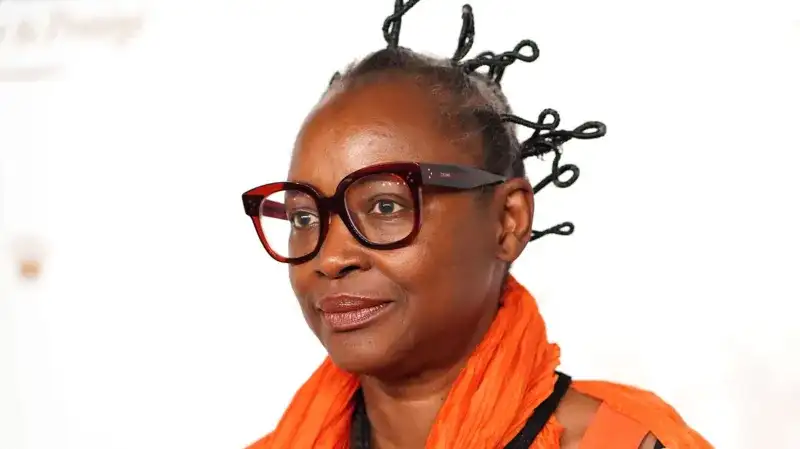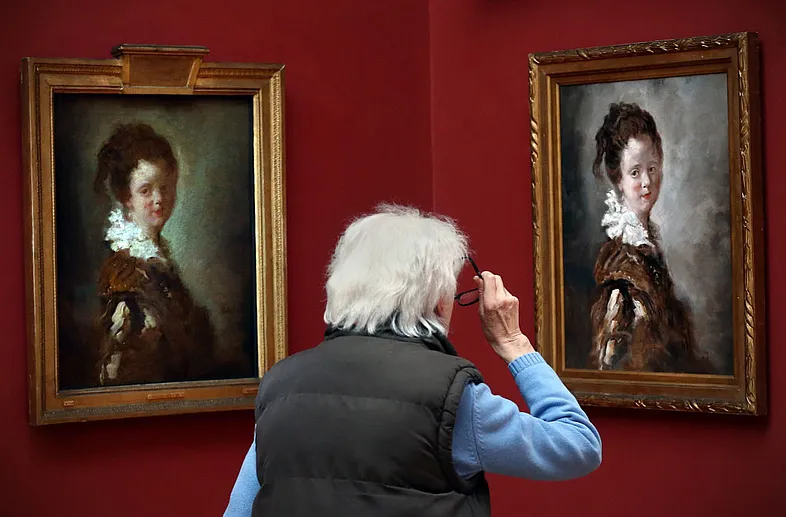Koyo Kouoh, the celebrated Cameroonian art curator and cultural force behind the rise of African contemporary art on the global stage, has died unexpectedly at the age of 57. Her death, confirmed to have occurred in Switzerland, has sent ripples across the art world, where she was widely regarded as one of its most transformative figures.
A Legacy Shaped by Passion, Not Profit
Born in 1967 in Cameroon’s cultural capital of Douala, Kouoh spent her early years immersed in the traditions and vibrancy of Central Africa before relocating to Switzerland at the age of 13. Though she studied business and banking, she quickly abandoned finance, stating in a 2023 interview: “I am fundamentally uninterested in profit.” Instead, she turned to social work, aiding migrant women and gradually immersing herself in the world of contemporary art.
Her path eventually led her back to Africa. In 1996, she moved to Senegal and founded the Raw Material Company in Dakar — a hybrid art space, think tank, and residency program that became one of the continent’s most important cultural hubs. Kouoh frequently credited Dakar as the city that “made me who I am today.”
Steward of Africa’s Largest Contemporary Art Museum
In 2019, Kouoh was appointed director and chief curator of the Zeitz Museum of Contemporary Art Africa (Zeitz MOCAA) in Cape Town — the continent’s largest museum dedicated to 21st-century African art. She took over following the departure of its founding director under a cloud of controversy. Under Kouoh’s leadership, Zeitz MOCAA emerged from crisis, weathered the pandemic, and redefined itself as a global cultural institution.
“For me, it became a duty to salvage this institution,” she said on the The Art World: What If…?! podcast. “If it had failed, it would’ve been the failure of all of us African art professionals.”
Among her most acclaimed curatorial achievements was When We See Us: A Century of Black Figuration in Painting, an expansive exhibition celebrating Black identity through a century of visual storytelling. It is currently showing in Brussels and stands as a testament to her vision and curatorial excellence.

On the Brink of Historic Firsts
Kouoh was preparing to make history once again in 2025 as the first African woman to lead the Venice Biennale — the world’s most prestigious contemporary art exhibition. Her selection for the role had been met with international praise and anticipation. That she passed away at the peak of her influence adds a note of tragedy to what had otherwise been a career marked by fearless ascension.
Tributes from the Global Art Community
The global response to Kouoh’s passing has been one of collective mourning and reflection. Nigerian artist Otobong Nkanga described her as a source of “warmth, generosity and brilliance.” South African artist Candice Breitz called her “magnificently intelligent, endlessly energetic and formidably elegant.”
Even outside the art world, her impact was acknowledged. Italian Prime Minister Giorgia Meloni said Kouoh’s death “leaves a void in the world of contemporary art.”
Personal Roots and Enduring Influence
Kouoh’s private life was as grounded as her public presence was visionary. She gave birth to a son in Switzerland in the 1990s, later adopting three more children. Friends described her as fiercely devoted to both her family and her work, a woman of action who never separated life from art.
In a final interview with the Financial Times, published just a week before her passing, Kouoh expressed her philosophical views on death: “I do believe in life after death… I believe in energies — living or dead — and in cosmic strength.”
A Closing Statement from Zeitz MOCAA
Following the announcement of her death, Zeitz MOCAA released a statement expressing “profound sorrow” and confirming that the museum would close until further notice in her honor. “Her leadership transformed not just our institution, but the very narrative of African art across continents,” the statement read.
A Lasting Legacy
Though gone far too soon, Kouoh leaves behind a body of work, a network of institutions, and an ideological foundation that will influence generations of curators, artists, and thinkers. Her life stands as a powerful reminder that art is not just a mirror, but a vehicle — for dignity, for justice, and for transformation.






